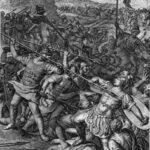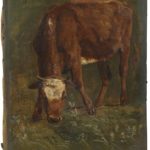The Torah repeatedly emphasizes that all the Egyptian firstborn died, from the lowest to the highest rungs of society, as well as the animals. However, it leaves ambiguous exactly what a firstborn is. Generally, in the Torah, the term בכור refers only to the firstborn of a mother and usually only if the child is male. With regard to the mitzvah of pidyon haben, a בכור has to be the ‘opening of the womb’ and if the mother’s first baby is female there is no בכור.
However, Tehillim 78:51, describes the dead firstborn as ראשית אונים apparently indicating that they were the firstborn of their father. Similarly, in the context of the of laws of inheritance, the term בכור refers simply to the first male child, regardless of older sisters. Further, the Torah states that ‘there was no house without a dead body’, which would be unlikely if only the firstborn according to the maternal line died. Ibn Ezra interprets this verse as being a figure of speech, but Rashi quotes two explanations that account for all the data. According to the first, the concept of בכור in Egypt included not just firstborn children, but the head of every household. According to the second, both the firstborn of the mother and the father were killed. In a healthy society this would not have a made a great difference, but because the Egyptians were progressives, many women had multiple firstborn sons by different fathers, greatly increasing the death count.
For more on parshat Va’eira, see Haggadah Berurah, the Haggadah that helps you tell the story of yetziat mitzrayim.



Leave a Reply